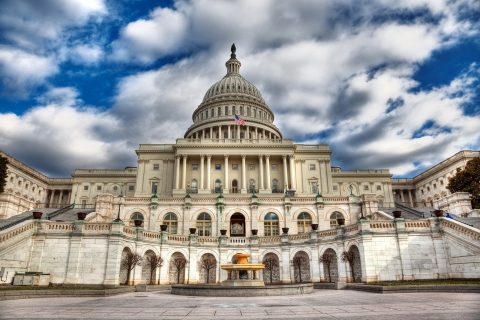Economics

Family Ties: A Closer Look at the Problem with Our Family-Based Immigration System
The U.S. immigration system has always promoted family unity by awarding the majority of visas to the families of current U.S. residents, which ensures that close family members are not kept apart. The principle of family unity has long been a central tenet of our immigration laws and has contributed to the economic and social prosperity of our country and immigrant populations. Read More

Immigration Gumbo in the Pelican State
The Pelican State is slowly stepping out as one of the most dynamic immigrant states in the nation. With a New American governor, an immigrant congressman and growing numbers of immigrants calling Louisiana home, the state is emerging as a model for what immigration can do for a state. One of Louisiana’s most famous faces is the state’s Governor Piyush “Bobby” Jindal who was born in Baton Rouge after his parents immigrated to the U.S. for graduate school and distinguished careers. He is the first American governor of Indian descent to serve in the U.S. Read More

Senator Vitter’s Amendment is Gumming Up the Census
By now, we’ve grown accustomed to Senators attempting to score political points at home through anti-immigration amendments, regardless of the topic of the underlying bill. Still, Senator David Vitter’s amendment to the Commerce, Justice and State appropriations legislation, which would cut off financing for the 2010 Census unless the survey includes questions about immigration status, is pretty convoluted—especially for a politician from a state still struggling to recover from the tragedy of Hurricane Katrina. Read More

Nobel Prize Winners and Immigration Policy
Digital cameras, cancer and aging research, and technology networks that carry voice, video and high-speed internet data around the world are just a few reasons to thank this year’s Nobel Prize winners. We can also thank smart immigration policy that brought three of this year’s winners to our shores in addition to a young student from Kenya whose son is this year’s winner of the Nobel Peace Prize. Who are these foreign-born innovators? Read More

Report Details Dangers of Denying Health Care Coverage to Legal Immigrants
Last week, the Senate Finance Committee completed its mark up of its health care reform bill. Amendments that would have further restricted legal immigrants’ access to health care and imposed burdensome new verification requirements on everyone failed in the committee. Now both the Senate and the House have their work cut out for them as they combine various bills into one and bring them to the floor for final votes. It’s likely that we will see additional attempts to save money by cutting health care to legal immigrants. It’s also likely that more political statements about denying benefits to illegal immigrants will arise. This week the Migration Policy Institute released a new report, Immigrants and Health Care Reform: What’s Really at Stake? This groundbreaking report provides cold hard facts about the numbers of immigrants that would be affected by the various proposals in Congress. When analyzing the dangers of denying health care coverage to legal immigrants, MPI’s report examined Census data and discovered that: Read More

Health Care Experts Agree: Including Immigrants in Health Care Reform Saves Taxpayers Money
Yesterday, the Sun Sentinel reported on what health experts have been saying throughout the factious health care debate: excluding immigrants from health care reform could jeopardize public health and leave costly gaps in insurance coverage. Health experts agree that preventative care, rather than costly emergency room visits—which cost, on average, about $1000 per visit—not only prevents the spread of infectious disease but also saves American taxpayers money in the long run. “If I’m standing next to someone who has tuberculosis and who is uninsured, it doesn’t protect me if they aren’t treated,” said Fernando Trevino, dean of the School of Public Health at Florida International University. “To the degree that someone is not getting care, they are more likely to spread infectious diseases to the rest of the population.” Read More

What Does a Decline in the Foreign-Born Population Mean to America and Immigration Reform?
For years now, one of the few findings you could count on in the Census Bureau’s annual statistics report was the steady growth in the foreign-born population. Other major indicators of the economy and society—like the poverty rate, or income levels, or even education trends—might go up or down, but it's been reliably true that the U.S. is a magnet for immigrants. Thus it was somewhat of a shock to see the Census Bureau report a decline in the nation's immigrant population between 2007 and 2008. The 2007 national estimate of 38.1 million immigrants fell to 38.0 in 2008. A decline of less than 100,000 people, to be sure, but a bellwether of...what? Read More

New Report: Good Immigration Policy Creates a Stronger American Middle Class
The myth that immigration is bad for U.S. workers has sullied the immigration debate for far too long. A new report by the Drum Major Institute for Public Policy (DMI), “Principles for an Immigration Policy to Strengthen and Expand the American Middle Class: 2009 Edition,” sets the record straight. In the midst of the worst economic downturn since the Great Depression, and in anticipation of a new round of legislative debates on comprehensive immigration reform, DMI’s report makes a rational, concise argument for why comprehensive immigration reform is needed to improve the conditions for middle class Americans. Read More

Immigration Reform: Congress’s Perennial Pothole
At a gathering in Washington this week, long-time immigration reform advocate Congressman Luis Gutierrez announced that he would soon introduce a comprehensive immigration reform bill in the House. This marker bill is likely to have something for everyone in it, combining the DREAM Act, family reunification, a legalization program, and even smart-enforcement components. He gave the self-imposed deadline of October 13 for the framework to be ready and it couldn’t come sooner. The lack of immigration reform continues to plague the administration at every turn, and plays a role in every major legislative battle the administration has fought since the inauguration. It came up in the stimulus bill and is now making a command appearance in the health care reform debate. Read More

An Anti-Immigrant Hate-Fest on Capitol Hill
A motley collection of anti-immigrant zealots and talk-radio shock jocks of the far right descended upon Washington, DC, this week for an annual event dubbed “Hold Their Feet to the Fire.” The two-day marathon of angry rants on the air waves coincided with three days of lobbying visits to congressional offices organized by the nation’s largest anti-immigration group, the Federation for American Immigration Reform (FAIR). Predictably, the assorted speakers and activists in attendance at this year’s hate-fest blame immigrants—particularly unauthorized immigrants—for virtually every economic and social ill to befall the United States, and demand that Congress continue to pursue the “deportation-only” approach to unauthorized immigration that has proven to be an utter failure for more than two decades. Read More
Make a contribution
Make a direct impact on the lives of immigrants.
